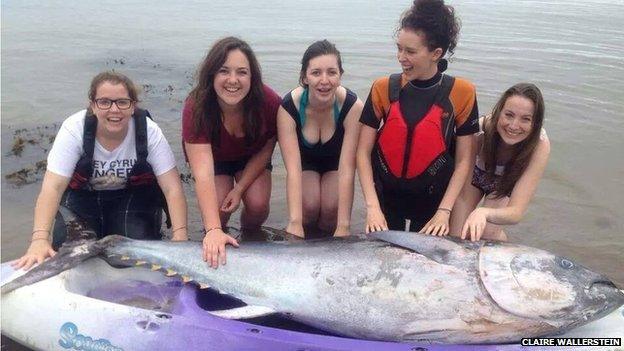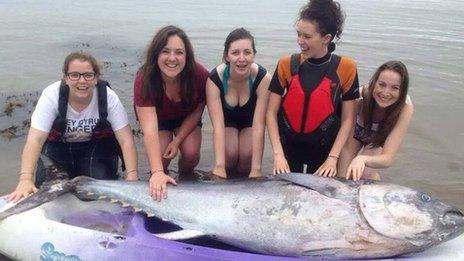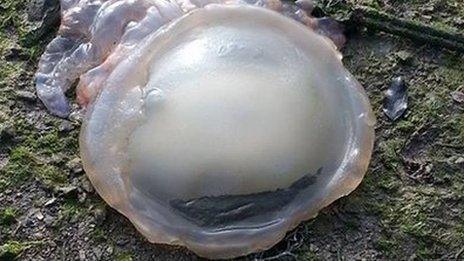Warm seas bring in exotic species
- Published

This group of friends discovered a bluefin tuna near Kingsand last week
Increasing numbers of exotic species such as bluefin tuna will appear off the Cornish coast amid warmer sea temperatures, scientists predict.
Temperatures are hitting 18C in Devon and Cornwall, nearly 2C more than normal for this time of year.
Plymouth Marine Laboratory said warmer water species such as sunfish could also be migrating into English waters.
The Met Office said winter storms had helped lead to an increase in summer sea temperatures.
Forecaster Alister McHardy said: "The sea was quite disturbed over the winter and that did not allow too much cooling of the surface layers.

Sunfish are among the exotic species that could be visiting England's shores
"So the season started with temperatures slightly above average.
"Last month we had 30-40% more sunshine than we'd normally get and with light winds that has helped build up temperatures at the surface."
Dr Tim Smyth of Plymouth Marine Laboratory said: "The water has got clearer too, which allows the light to penetrate the sea and warm up the surface.
"Maximum temperatures are reached about the beginning to middle of August, so we are not at the top level of what we are going to get.
"We can expect to see sunfish and more bluefin tuna as the water warms."
A bluefish tuna was hauled out of the sea by kayakers in Kingsand, Cornwall on 12 July.
Barrel jellyfish, which have been spotted off Cornwall, are also thought to have been brought in by warmer seas.
But Dr Smyth warned against putting the rise down to climate change.
"We have had some pretty awful summers followed by a good summer last year and a potentially good summer this year so we can't say it's part of some climate shift."
- Published14 July 2014

- Published9 July 2014

- Published20 May 2014

- Published15 February 2014
